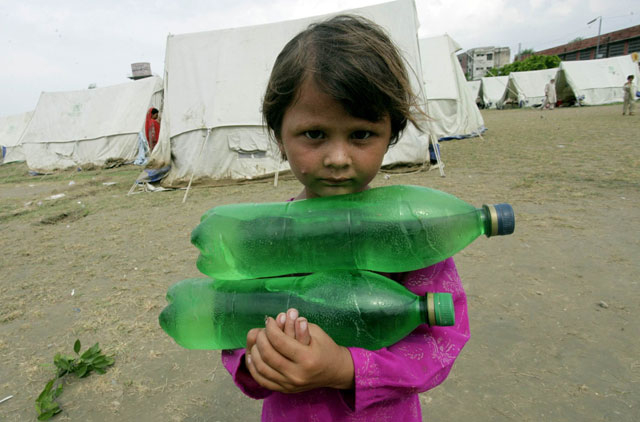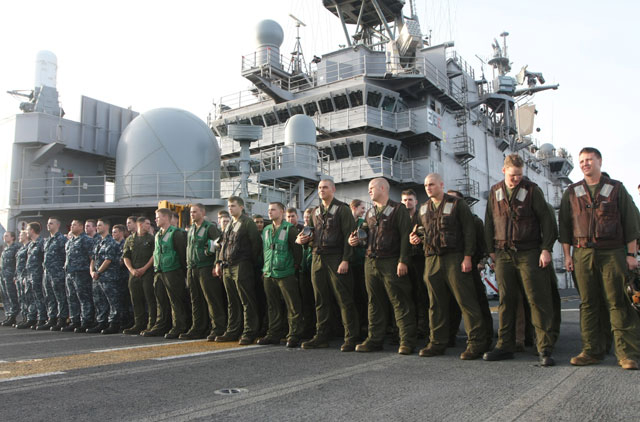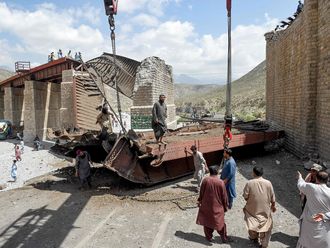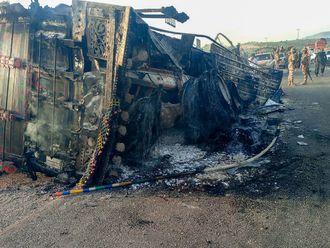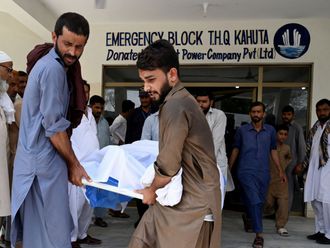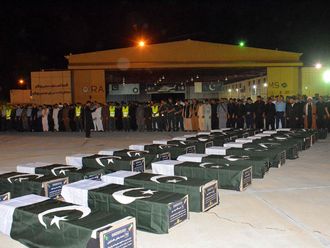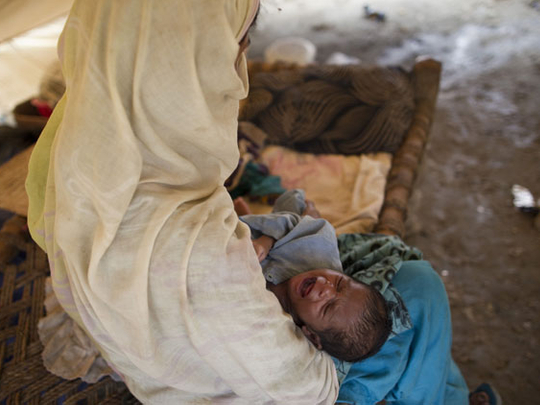
Sukkur: A shipload of US Marines and helicopters arrived to boost relief efforts in flooded Pakistan, but the prime minister told media his country needs more international help to cope with one of the worst natural disasters in its history.
UN spokesman Maurizio Giuliano said officials roughly estimated that up to one-fourth of the country is or had been affected by the floods, though those areas were not necessarily under water.
Meanwhile, disease outbreaks pose new risks to victims of Pakistan's worst floods in decades, aid agencies said on Friday, potentially hindering already complicated relief efforts.
The government has been sharply criticised for a slow and patchy response to the floods, which has killed 1,500 people left and left an estimated 7 million people needing emergency assistance, their homes destroyed, damaged or inundated with muddy water and unlivable.
President Asif Ali Zardari - whose decision to go ahead with a trip to Europe when the disaster began was condemned by many - made his first visit to victims of the disaster on Thursday, according to state-run Pakistan Television that gave few details of the trip.
The United States has pledged $71 million in emergency assistance to the country and deployed the military to help, as it often does after major disasters.
The floods, triggered by torrential monsoon downpours, have engulfed Pakistan's Indus river basin, killing more than 1,600 people, forcing two million from their homes and disrupting the lives of about 14 million people, or 8 percent of the population.
Although waters have receded in some areas, fresh rains could bring new destruction, and a health crisis would tax aid agencies already facing huge logistical challenges.
The United Nations is increasingly concerned about water-borne diseases. There are 36,000 suspected cases of potentially fatal acute watery diarrhoea reported so far At least 96 health facilities have been damaged across the country.
"This is a growing concern. Therefore we are responding with all kinds of preventative as well as curative medication... for outbreaks," said Maurizio Giuliano, the UN humanitarian operation spokesman said.
The floods have roared down from the northwest to the Punjab agricultural heartland to the southern Sindh province, where new floods are possible.
The UN's World Food Progamme said there have been reports of diarrhoea but the problem was not widespread, although it's still cause for concern. "The situation is alarming," spokesman Amjad Jamal said.
The deluge, which began two weeks ago, has caused extensive damage to the country's main crops, agriculture officials said, after the United Nations appealed for $459 million in emergency aid and warned of a wave of deaths if help didn't arrive.
Economy hammered
Entire villages have been swallowed up. Fertile lands have been destroyed, stripping farmers of their livelihood. Bridges have collapses. People desperate to keep their livestock walk-neck-deep in water, pulling the animals along.
The International Monetary Fund has warned of major economic harm and the Finance Ministry said the country would miss this year's 4.5 percent gross domestic product growth target though it was not clear by how much.
Wheat, cotton and sugar crops have all suffered damage. Agriculture is a mainstay of the economy and the United Nations has estimated rehabilitation will cost billions of dollars.
"On the downside, crops could have suffered damage and food inflation will soar. There may be severe shortages too and riots could well break out," said independent economist Meekal Ahmed. "The power shortage which has crippled industry could get worse. Exports would be hit as well."
Cholera would create another major crisis and determining if there has been an outbreak is difficult.
"Acute watery diarrhoea is on the rise but we have limited access to some of the areas. The access is hampering our efforts to reach and attend to these cases," said Dr. Irshad Sheikh, regional adviser for emergency preparation and humanitarian access for the World Health Organisation.
"You don't have access to labs in those areas so cannot confirm if it is actually cholera."


